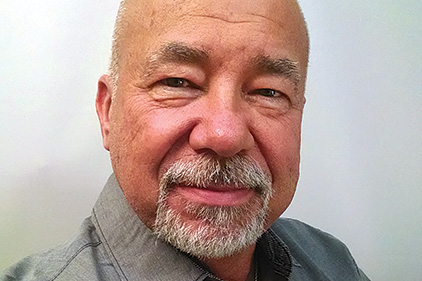
|
| Frank Besednjak, president, The Training Source, Louisville, Kentucky, and founder of Customer Care Plus, believes HVAC contractors should be held at a higher level of service than they have been in the past. |
When Frank Besednjak first noticed a customer survey on the back of a Burger King receipt, the business coach and speaker immediately thought of how such a service would be of use to HVAC contractors. However, he didn’t immediately act on his thoughts.
Besednjak, president of The Training Source in Louisville, Kentucky, travels a lot, completing about 100 workshops a year. While he was traveling, he began noticing more and more customer surveys for Marriott, Hilton, and Holiday Inn.
“What a great idea. The questions were pertinent to the service, and I was impressed with each company’s desire to connect with the client,” Besednjak said. “I thought, that’s interesting that they have so much information that they’re willing to give something in return. It just makes sense.”
Besednjak tracked down Mindshare Technologies, a company that creates survey systems, and, while it took some convincing, created Customer Care Plus in 2009. Besednjak runs the service with business partner Mark Schmidt.
Mindshare uses the Internet to provide instant customer service feedback to participating contractors. Besednjak explained that Mindshare owns the software and he pays them to run Customer Care Plus’s questions through the system.
“A lot of competitors have surveys that only ask one question, ‘Would you recommend us based on 1-10?’” said Besednjak. “That’s great; it will let you know if you suck. But all you learn is that the customer is not happy. You don’t know why. To get any additional information, you have to send out more surveys, which can be quite expensive.”
Roger Grochmal, owner, AtlasCare, Oakville, Ontario, Canada, said his company uses the Net Promoter Score and System (NPS), a phone-based customer satisfaction program. The NPS survey begins with the recommendation rating question that Besednjak mentions above. A business’s NPS score is derived by dividing customers into three categories: promoters, passives, and detractors. Promoters give 9-10 scores, passives give 7-8 scores and are considered neutral, and those scoring the service a 6 or less are detractors, or unhappy customers. To calculate the NPS, a company takes the percentage of detractors and subtracts it from the percentage of promoters.
According to Grochmal, a world-class score is considered anything above 70. AtlasCare is running close to 80.
Additionally, AtlasCare provides an online survey on the company’s website. “We don’t reach everybody on the phone,” Grochmal said about the two types of surveys. “We phone a sample of people, but they and others will not bother to phone. You have to provide different ways for people to reach you. Some people like to reach you by phone, and others will take the time to go to your website and do that. We gather feedback from all sources.”
Farmington Hills, Michigan-based Thornton & Grooms Inc. also uses a mixture of online and phone calls to gauge customer satisfaction. The company features an online survey and it calls every customer serviced, usually within hours of the visit, according to owner, Matt Bergstrom.
According to Bergstrom, the main question asked is the same “on a scale of 1-10, with 10 being the best, how likely would you be to refer us to your friends and family?”
“Knowing everybody rates differently, we are happy with anything eight or above,” he said. “Although we will ask what we could have done to earn a 10. Also, if it is lower than an eight, we work immediately to remedy the situation.”
Bergstrom said between 1-2 percent of Thornton & Grooms customers are completing the survey, without any incentives. “As with most of our service feedback, we build it in as a technician expectation that they need to have a small number of surveys returned each week,” Bergstrom said. “We do offer nominal gift certificate incentives for our HVAC installs.”
A Smart System
Besednjak stresses that Customer Care Plus is an immediate feedback system. Contractors just put a stamp on the invoice with the website address or toll-free phone number and whatever incentive they may be offering.
The system itself not only gives answers to the questions, but will break results down by question, technician, and will graph data out. “Users can chart their weaknesses. For example, perhaps a company struggles at arriving on time. They notice that, of the last 40 surveys, 15 percent of people said the company’s representatives didn’t arrive at the appropriate time, but everything else was good. It’s a great tool to be able to analyze specifically what’s going on during the customer experience.”
Customer Care Plus will instantly alert a contractor if the company has been rated poorly in any area, allowing them to quickly react to a problem the same day, according to Besednjak.
“Another great thing we’ve found is that it [Customer Care Plus] keeps people off the review sites. In other words, if you have a customer who’s complaining, this is a website you can actually control versus Yelp or Angie’s List, where 50,000 people might see it.”
Customer Care Plus is actually a smart system, so the number of questions actually depends on the answers given. “They (customers) go in and the system asks if the work performed was under warranty or out of warranty, was it an installation or service, and, depending upon the answers, they can be asked anywhere from six to 20 questions,” Besednjak said. “If there’s a negative comment, it asks, ‘Why would you rate this negatively?’ It adds a little bit more information based upon the person’s response.”
Besednjak said the value of Customer Care Plus is that it allows contractors to run their businesses and make changes based on customer feedback.
“I’ve learned that people measure the success of the money they spent based on the overall experience you have to offer,” Besednjak said. “They’re going to compare the guy coming out to repair the air conditioning to the doctor’s office. And, unfortunately, what’s been happening in the HVAC industry is we’re so inwardly focused that we don’t see what’s going on around us, and all the other types of businesses try to provide that same level of service. You go to a doctor’s office, you expect a certain level of service; you go to a restaurant, you expect a certain level of service. When a person deals with a heating and air technician, electrician, or plumber, they automatically assume it’s going to be a lower level of service and the quality is going to be lower simply because we’ve accepted the fact that that’s the way we are.
“It doesn’t have to be that way. We should be the same as the doctor’s office. We need to offer the same service expected at a high-end restaurant.”
Everyone Benefits
Overall, company size does not matter. Customer Care Plus can be beneficial to all HVAC contractors, according to Besednjak.
“We have a company that has several hundred employees and we have a company that has very few employees,” Besednjak said. “They both love it. And it costs them the same: $99 per month.”
Jeffrey Herman, marketing and communications consultant, HomeSmart, Centennial, Colorado, said his company began using Customer Care Plus in 2009 because “we needed a tool for customers to be able to leave feedback about our performance, and a measurement tool for performance evaluations of our technicians and service partners.”
HomeSmart, a subsidiary of Xcel Energy, offers residential HVAC, kitchen, and laundry equipment repair and replacement plans, along with sales and installation of new HVAC equipment and accessories. The company currently employs 20-40 people, including technicians, office staff, and call center agents.
Herman said between 1-2 percent of HomeSmart customers completed the survey in 2013.
“In addition to being a good barometer for how well we are serving our customers (areas of success and areas of improvement), it’s also very useful for helping with technician performance ratings and evaluations,” Herman said. “We have implemented changes with how certain types of repair calls are handled with our service partners, along with key areas our technicians have been told to give more attention and emphasis to.”
Mid-Cities Air Conditioning, Richland Hills, Texas, a residential service, maintenance, and repair contractor, is Customer Care Plus’ smallest client, with just five employees, according to owner Penny Luker.
Luker said her company has been using the service for the last four years and she absolutely loves it.
“First off, it gives customers a way to let us know when they’re unhappy without being confrontational. A lot of times, that’s hard for people,” Luker said. “The feedback just makes us feel good as a company and also it’s good for our website. We don’t post a reviewer’s full name, but we use the date, his or her first name and last initial, and the location, so people can realize these reviews are relevant. They’re not from 2008 and just sitting there.”
Mid-Cities operates as a paperless contractor, which has had a negative impact on how many customers are completing the survey, according to Luker.
“We had a lot more completing the survey when we had paper invoices because I had a very noticeable bright pink sticker with the surveys on them,” Luker said. “Now, with our iPad invoicing, it’s kind of buried in the bottom, which has caused our responses to dwindle. They’re not as in their face, I guess. And some people tend not to read all the way through their invoices.”
Luker estimates about 20 percent of her customers complete the survey now. As an incentive, she offers a $5 gift card to Starbucks for everybody who does.
“I will continue to keep using it; I think it’s a great product,” Luker said. “It’s very cost-effective.”
Customer Care Plus currently has 12 companies signed up. Each business has been added through referrals, according to Besednjak, who said he hasn’t had time to advertise.
Providing an Outlet
“The problem with customer surveys is, if you leave it up to the customer, you only hear from two subsets of customers: those who really love you and those who really dislike you,” said Grochmal. “You don’t hear from the great unwashed middle. By being proactive and calling, we ferret out the people who are mildly unhappy instead of just the ones who are really unhappy. So, it’s a better system.”
Besednjak said he had a recent experience with a contractor who never smiled and never put down any protective covering for his carpet.
“They didn’t even think about it.” Besednjak said. “Those are the little key things that people will tell you, if you ask them, but nobody asks them. No one makes it easy for the customer to communicate that information back. And that’s all I’m trying to do here. If you can do that, you can charge more money and now the customer sees the value versus the guy who just showed up and fixed it. It should be more than that.”
Publication date: 12/15/2014
Want more HVAC industry news and information? Join The NEWS on Facebook, Twitter, and LinkedIn today!



Report Abusive Comment